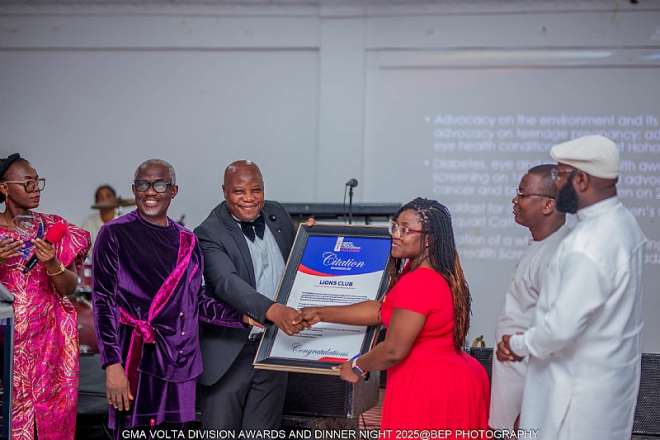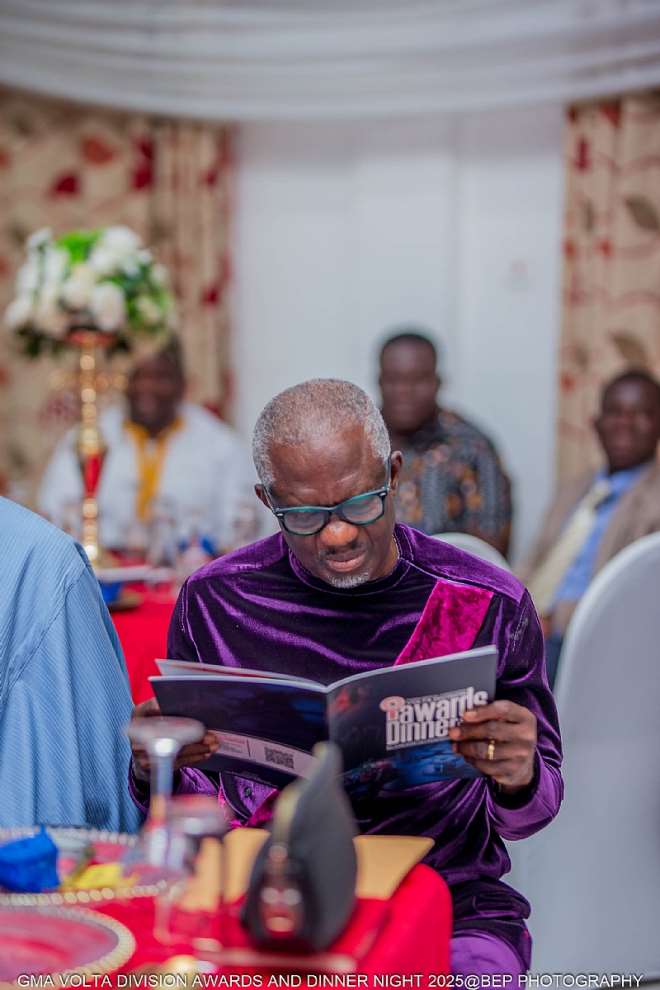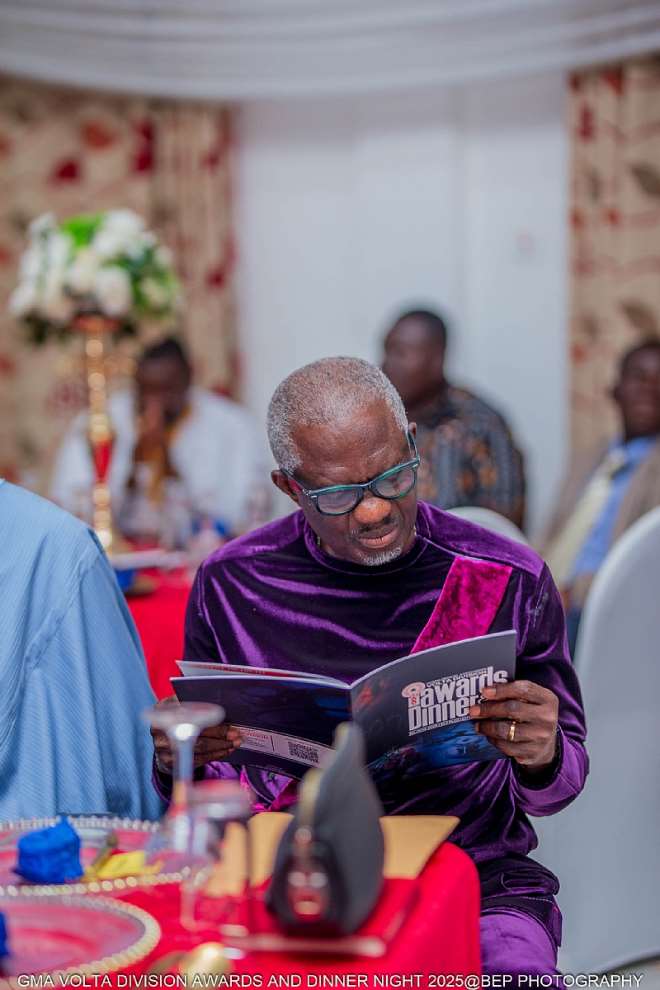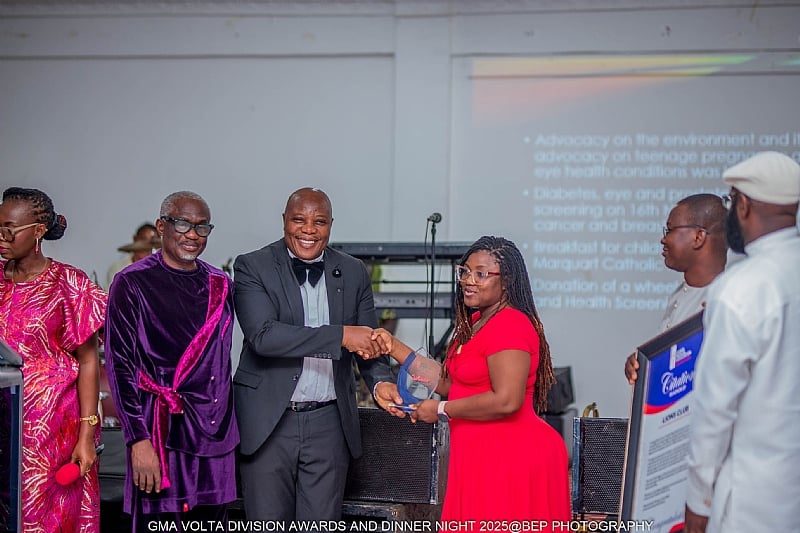Dr. David Kofi Mawuvi Wuaku has made a strong appeal for increased private sector involvement in healthcare delivery across the Volta and Oti Regions, emphasizing that government alone cannot meet the growing needs of the population.
Delivering the keynote address at the Ghana Medical Association’s Regional Dinner and Awards Night in Ho on Saturday, June 7, 2025, Dr. Wuaku underscored the urgency of forging strategic partnerships with private investors to improve access, quality, and innovation in healthcare.
A seasoned financial analyst and former administration manager at the Bank of Ghana, he outlined the transformative role the private sector can play—not just as a funding source, but as a partner in driving efficiency, innovation, and sustainability in healthcare delivery. He pointed out that private capital could support the modernization of hospitals, the acquisition of cutting-edge diagnostic tools, and the adoption of digital health technologies such as telemedicine and electronic health records.
Dr. Wuaku also advocated for expanding Public-Private Partnerships (PPPs) as a means of combining public sector reach with private sector agility. He proposed joint ventures in diagnostics, emergency response, and maternal health, and called for private-led training programs to build capacity and ensure local health professionals remain globally competitive.
To support his appeal, he cited successful examples in the region. Faith-based institutions like Margret Marquart Hospital in Kpando and Catholic hospitals in Dodi Papase and Sogakope were highlighted for their effective blended financing models. Diagnostic centres such as SkyLab and Legacy Diagnostics, as well as local pharmacies and herbal clinics, were also praised for their roles in extending healthcare access to underserved communities.
He proposed a three-pronged strategy for unlocking private sector potential: policy reform, strategic partnerships, and strong regulatory oversight. He urged government to provide incentives such as tax relief and simplified licensing to attract investment in remote districts like Nkwanta South and Krachi Nchumuru. Additionally, he encouraged collaboration among key players—including the Ghana Health Service and the National Health Insurance Scheme—to ensure a cooperative and complementary approach to service delivery.
While advocating for private investment, Dr. Wuaku was quick to emphasize the indispensable role of health professionals. “You — the doctors, nurses, pharmacists, and administrators — are the ones who transform capital into care, and structures into sanctuaries of hope,” he said. He commended award recipients for their dedication and encouraged all health workers to remain open to innovation and private sector collaboration.
He also envisioned a brighter healthcare future for the regions, where timely diagnostics prevent maternal deaths and specialist services draw not only locals but medical tourists. “This is not a fantasy,” he said, “It is a possibility, but only if we commit to intentional private sector engagement guided by public interest.”
Dr. Wuaku concluded by calling on investors, health entrepreneurs, and development partners to explore the largely untapped opportunities in the Volta and Oti Regions. He urged regulators to foster an enabling environment and called on healthcare professionals to lead the charge in this transformation. “Together, we can build a healthcare system that is not just reactive, but proactive,” he concluded. “Let us begin now.”
Earlier in the evening, Awards Committee Chairman Dr. Adu Appiah-Kubi, in his welcome address, explained that the ceremony aimed to recognize more than just personal accomplishments. It celebrated “the spirit of unity, resilience, and hope that underpins the work of healthcare professionals in the Volta and Oti Regions.” He added, “Each award symbolises not only lives changed and communities uplifted, but also a collective promise of progress.”
Dr. Appiah-Kubi, an Obstetrician-Gynaecologist consultant, called for even stronger collaboration among government, the private sector, NGOs, and individuals to confront the challenges facing healthcare delivery. He encouraged stakeholders to share ideas, pool resources, and drive innovation to ensure equitable access to care. Praising the awardees as “beacons of inspiration,” he concluded that the night was not just about recognition, but about “deep gratitude and a renewed commitment to excellence and inclusivity in healthcare.”








